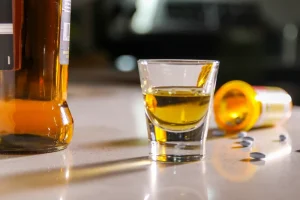
While night sweats are a common and uncomfortable symptom of alcohol withdrawal, understanding their cause provides a foundation for managing them effectively. With the right strategies and support, individuals can overcome these challenges as part of their journey toward recovery from alcohol dependency. Alcohol withdrawal is a challenging condition that manifests both physically and mentally when a regular drinker suddenly reduces or stops alcohol intake.
Identify Alcohol Intolerance

Night sweats can interrupt sleep, as some people must get out of bed to make them stop, change their clothes or change their bedding. Repeated episodes can lead to poor sleep and then fatigue the https://ecosoberhouse.com/ following day. To find another treatment program, browse the top-rated addiction treatment facilities in each state by visiting our homepage, or by viewing the SAMHSA Treatment Services Locator.
Treatment for Excessive Sweating after Drinking Alcohol
This section explores the effects of alcohol intolerance and how it contributes to symptoms like night sweats. For some, even having one glass of wine or pint of beer can cause flushing in the face, and the more the person drinks, the redder their skin becomes. Night sweats, characterized by excessive sweating during sleep, does alcohol make you sweat can manifest across various parts of the body, including the face, chest, back, and arms. This symptom often leaves individuals waking up feeling cold as a result of the moisture generated by the body. One of the most common symptoms of alcohol intolerance is facial flushing, which can also cause excessive sweating.
What are Alcohol Night Sweats?
There is no direct health threat from either of these sweating episodes, but the sweat and flushness can be uncomfortable. The best way to reduce both of these skin reactions is to reduce or eliminate alcohol consumption entirely. Alcohol intolerance and alcohol withdrawal can also lead to symptoms such as night sweats and facial redness. A person may not experience any symptoms or signs of liver damage or scarring, which people call cirrhosis, until the liver is badly damaged.
Doctors may use allergy tests to determine whether alcohol is the issue. Alcohol intolerance is a genetic disorder where the body does not have enough of the enzyme activity necessary to break down alcohol. It is best that people with alcohol dependency or intolerance speak with a doctor. Our 125+ acre ranch located just outside of Fort Worth, Texas, serves as a tranquil campus for you to get back on your feet. While enrolled in either our 45-day, 60-day, or 90-day program for substance abuse, you’ll have access to top-notch clinical, medical, and spiritual care. Here, you’ll get to partake in individual counseling, group therapy, and other fun activities like our ropes course, equine therapy, and our annual crawfish boil.

Rough sleeping in extremely low temperatures over winter, combined with prevalent alcohol addiction problems, make the homeless population particularly vulnerable to hypothermia. Your body temperature control (thermoregulation), is affected when you consume alcohol. The alcohol causes unusual thermoregulation activity as it influences the mechanisms your body uses to either warm you up or cool you down.
Withdrawal from alcohol can also cause a fever, which can contribute to perspiration. Consuming alcohol can speed up heart activity, which in turn can lead to dilated blood vessels and symptoms such as flushed skin, warmness, and sweating. Find answers to common questions about how alcohol causes night sweats during withdrawal, how long they last, and alcohol abuse treatment options.

For most of us the chances of developing hypothermia are slim as long as we drink sensibly and avoid alcohol-induced bad decisions like going out in freezing weather. Whether it’s for social get-togethers, seasonal events or house parties, there’s usually some form of alcohol involved. While relaxing with a drink can be fun, it’s important to keep track of our intake. However, as long as we’re sensible and aware of our units, our chances of developing health issues are low. Alcohol makes a lot of people sweat, so the more you drink, the more often you will be sweaty.
- As people who flush red when they drink know, alcohol increases blood flow to the skin (vasodilation).
- People with alcohol intolerance lack the enzyme, Aldehyde dehydrogenase (ALDH2), which people use to digest alcohol.
- To cut back on drinking, try setting an alcohol limit for yourself before going out or replacing drinks with sparkling water or low-calorie mocktails.
- However, night sweats may also occur after a single night or episode of drinking alcohol.
- Interrupted sleep like this is hardly restful, and it can be dangerous.


